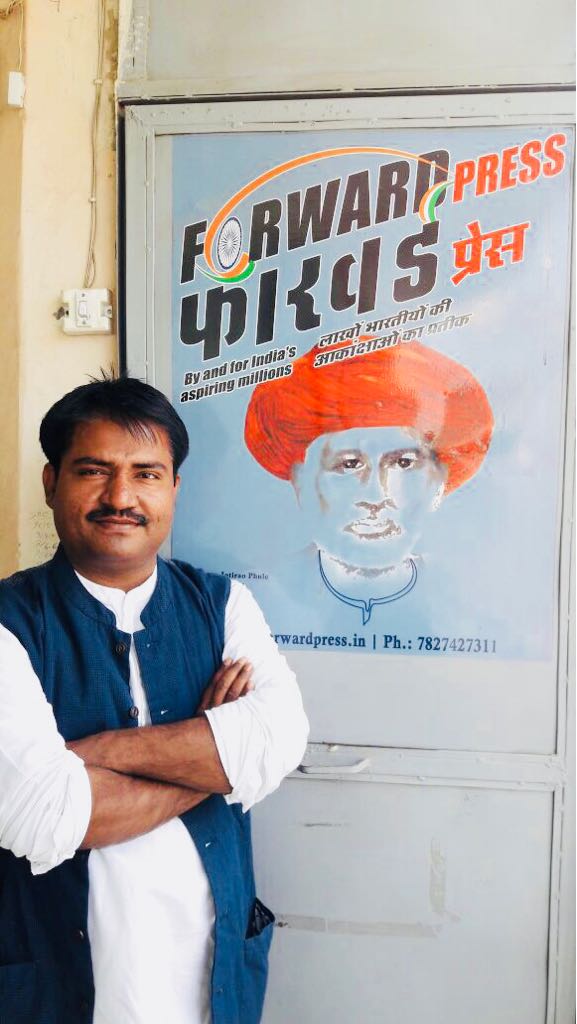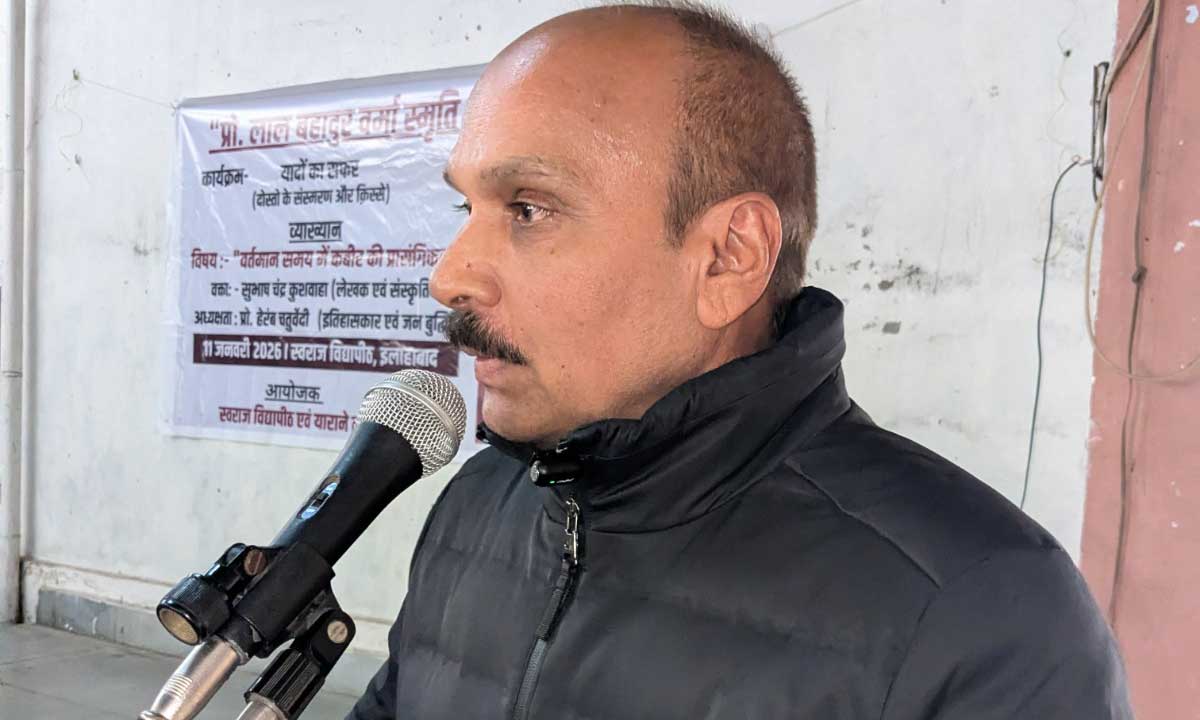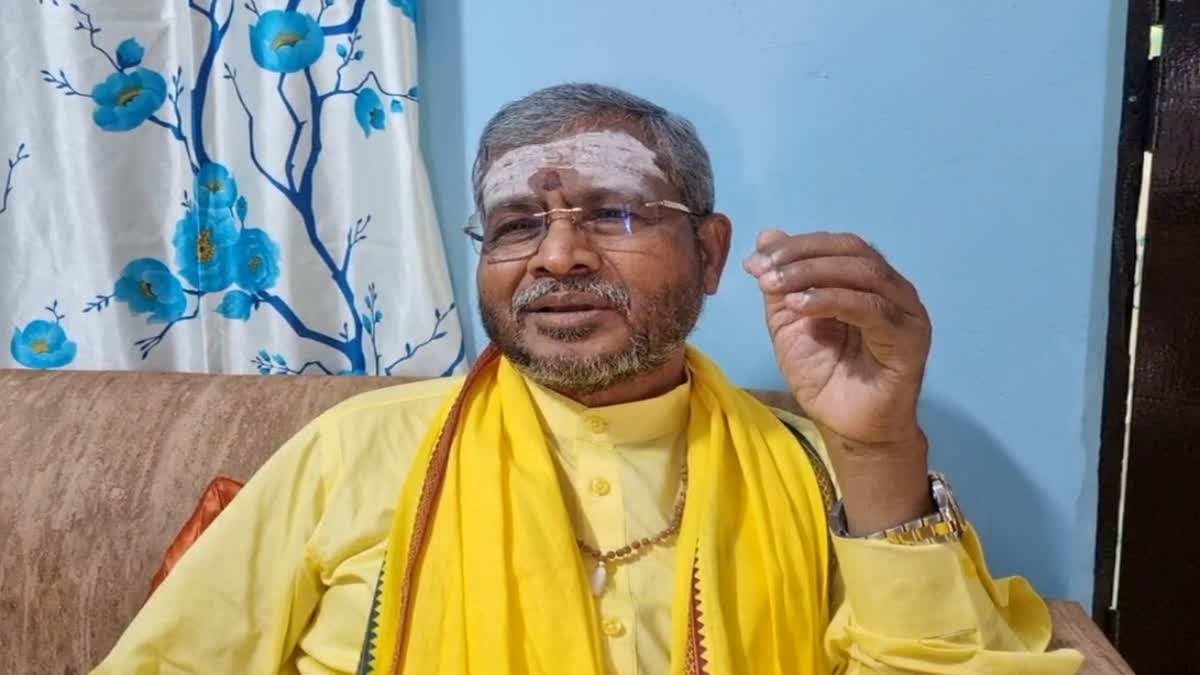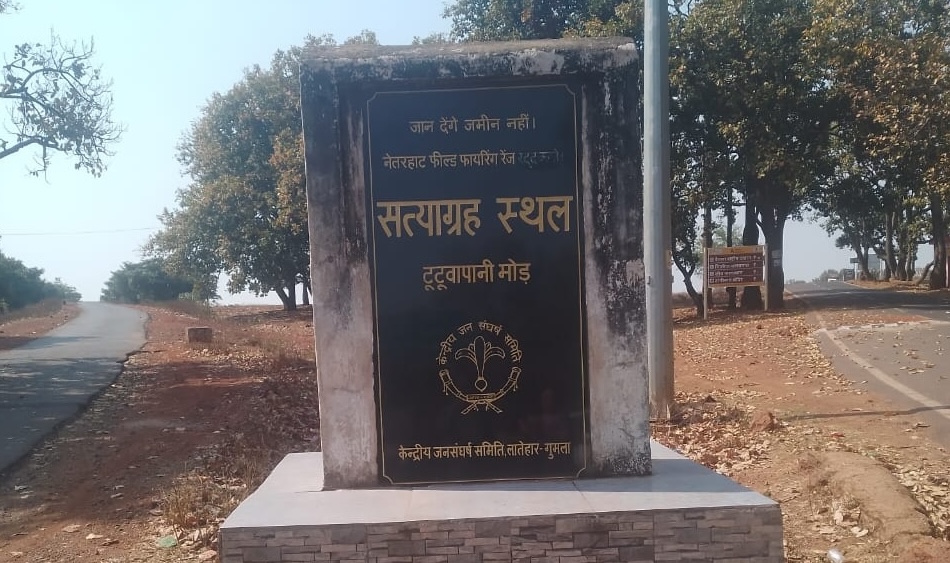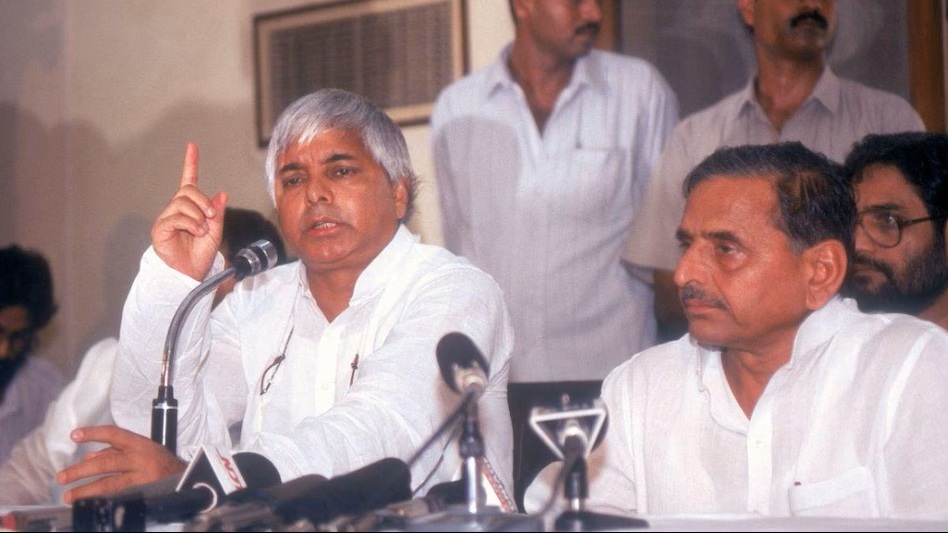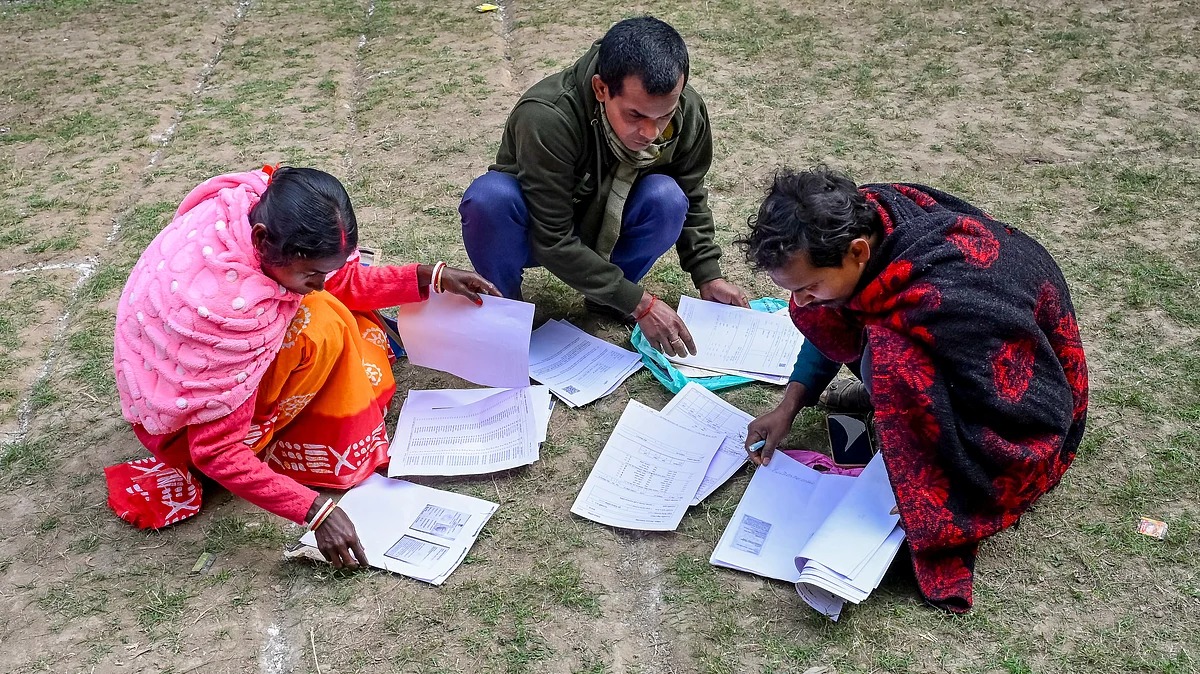On 2 May 2025, the Congress Working Committee (CWC) met at 24 Akbar Road, New Delhi – the national headquarters of the party. This special meeting of the party’s highest decision-making body was convened in the wake of the Union Cabinet, on April 30, giving its nod to a caste census. After the meeting, Dr Anil Jaihind, national chairman, OBC Department of the party, talked to FORWARD Press. Excerpts:
A crucial meeting of the Congress party was held after the announcement of a caste census. What was it about?
The Congress Working Committee (CWC) met under the chairmanship of our honourable national president Mallikarjun Kharge. The meeting passed a resolution urging the central government to immediately make the requisite financial allocations for holding a caste census, finalize its methodology and announce a deadline for the completion of every stage of the exercise – from preparing the questionnaire to the compilation of data. “Samvidhan Rakshak” (Protector of the Constitution) Rahul Gandhi also attended the meeting. The CWC hailed the national campaign launched by him to demand a caste census. The meeting urged the government to take all political parties into confidence on this issue and model the caste census on the caste survey conducted by the Telangana government.
The leaders of the Bharatiya Janata Party and its alliance in the National Democratic Alliance who were earlier dead set against caste census have had an overnight change of heart. They are now hailing the decision as a master stroke of the government. It is also being said that the move would profoundly impact the upcoming Bihar Vidhan Sabha elections. Does this come up at the CWC meeting, too? What is the thinking in the Congress on this front?
You see, Nawal ji, it is very simple. For the Congress, this is a nation-building issue. We organized many Samvidhan Sammelans [Conferences on the Constitution] all over the country. At every conference, Rahul Gandhi emphatically and vociferously stated the need for a caste census. Some of our party leaders advised him that this may hurt the party politically. But he was firm. He said that political loss and gain were not important for him. For him, caste census was essential in nation-building. Caste census would propel India to becoming “Prabuddha Bharat” (Awakened India), which was the dream of Babasaheb. He declared that he would continue with his campaign no matter what. For him, caste census was an ideological issue. For the BJP, caste census is not at all an ideological issue. It was never important for the BJP and its affiliates. They are against equality. Babasaheb had tabled the draft of the Constitution in the Constituent Assembly on 26 November 1949 and it was adopted on the same day. It came into force two months later, on 26 January 1950. But within two or three days of its adoption, Organiser, the organ of the Rashtriya Swayamsevak Sangh (RSS) objected to Manusmriti not being a part of it. They wanted Manusmriti to be the bedrock of the Constitution then. They want it now. Caste census, which would secure their rights to the majority of Indians, is not an ideological issue for the BJP. It is an election plank.
And the cat is now visibly out of the bag. It is being said that the Intelligence Bureau (IB) had reported that due to Rahul Gandhi’s stand on caste census, OBCs, SCs and STs were rallying round him. Prime Minister Narendra Modi had met the RSS chief. The Sarsanghchalak, too, must have conveyed to the Prime Minister the information provided by the RSS shakhas. So, it is clear that this is a political decision on the part of the government. They feared that if they didn’t conduct a caste census, they would suffer politically.
On the other hand, for the Congress, for Kharge ji, for Rahul ji, this is an ideological issue. When the nation was fighting for freedom, some were content with the title of Rai Bahadur. They saw an advantage, they lobbied for it – this when millions were braving lathis and many were kissing the hangman’s noose. Principles, not advantage, guided this lot. Almost the same thing is happening now. There are two ideologies – one that believes in equality and has the sanction of our Constitution and the other that believes in inequality and approves of birth-based social hierarchies. A handful of people like Adani and Ambani are sitting over the nation’s wealth. The system has become their handmaiden. This is a battle between two ideologies. For us, caste census is not about winning elections, it’s about ideology, it’s about principles, it’s about Prabuddha Bharat.
Almost all the constituents of Indian National Developmental Inclusive Alliance (INDIA) are claiming credit for the decision. Why this internal wrangling?
You see, this is politics. Everyone is in the race for claiming credit. There is nothing wrong in it either. Anyway, INDIA leaders have always been in favour of a caste census. It was Modi and his associates who, till recently, were wishing away caste. They were claiming that there is nothing like caste in India and that the country is divided into only the poor, youth, women and farmers. They were also saying that those talking about caste are evil people, urban naxals. And now, they are taking credit for it. That’s why I am saying that all this is politics. And there is no harm if anyone is trying to take credit.
The condition of the Extremely Backward Castes, including the Pasmanda Muslims, is a major issue. What is Congress’s thinking on it?
As you know, the Congress has been organizing Samvidhan Sammelans in all corners of the country. On 18 January a Samvidhan Sammelan was held in Bihar. At the time, I was not in the Congress. At that conference, panel discussions were held on various issues. One panel discussion was centred on the rights and the entitlements of the Extremely Backward Castes (EBCs). I had requested Rahul ji to come a little early so that he would be able to hear the concerns and the problems of the EBCs directly from those belonging to these castes. Normally, leaders head for the dais as soon as they arrive at an event. I requested Rahul ji not to do that and instead to sit among the audience and listen to what is being said. He was kind enough to accept my request. At the time, he was running a fever and also had a sore throat. But he sat among the audience for over 45 minutes and listened to the panel discussion. On the stage, the issues of EBCs were discussed. Everyone was free to have their say. One of the speakers openly said that the Congress people claim that the share of every community should be proportionate to its population but in the Bihar chapter of the Congress, one caste has a disproportionate representation in the organization. Since then, we have been trying to ensure that we walk the talk. Our stand should reflect in our organization, in what we say and do. Recently, we organized a programme in Patna to commemorate EBC icons. Rahul ji attended the programme. A large number of people from the Nonia community attended it. We remembered martyr Buddhu Nonia. We remembered the sacrifice of Ramchandra Prajapati, who was martyred during the 1942 movement. A large number of our friends from the Prajapati community were there. Kahar (Chandravahsi) people were present in good numbers. You can verify this yourself. You would have your sources. For the past three months, every day, a large number of people have been thronging Sadaqat Ashram (the headquarters of Bihar Pradesh Congress Committee) and 80 per cent of them are EBCs. You see, now the doors have been opened. Under the leadership of the new Bihar Pradesh Congress Committee chief Rajesh Ram, EBCs are joining the party in large numbers. They now feel that it’s their own party, that they are the decision-makers. So, the BJP alliance is losing ground in Bihar.
Are these changes in the Congress organization confined to Bihar or are they happening nationwide?
You see, the Congress is a national party. The changes that are coming about are not regional. People can see that Rahul is openly, without any ifs and buts, speaking against Manuwad, against caste discrimination, against capitalism. If you speak against this Manuwadi government, it gets the Enforcement Directorate to file cases against you; it sets the CBI on you. The result is that the leaders who roared like a lion on issues related to social justice are quietly sitting in their homes. They have built 20-foot-high fences around their homes. It is not easy to fight a Manuwadi system. But Rahul is fighting and winning. This is what matters the most.
Is there any change in the party’s stance on the Pasmandas?
Impressed with Rahul ji, our friend Ali Anwar Ansari – the pioneer of Pasmanada movement – has joined the Congress. He has written a revelatory book on the issues of Pasmandas – Masawat Ki Jung. He attended our Samvidhan Sammelan at Ranchi. That was an apolitical event. After the event he announced that he would join the Congress and within a week, on 25 January, he took the party’s membership. He is a prominent member of the committee that is drawing up our manifesto for the Bihar elections. He is making the manifesto. Who would be more knowledgeable about Pasmandas than him? Professor Khalid Ali Ansari from the Azim Premji University is also associated with us.
These are just two individuals. Is the Congress trying to accommodate Pasmandas in its organization?
Those who are categorized as EBCs form around 36 per cent of Bihar’s population – 12 per cent are Pasmandas and the remaining 24 per cent are backward Hindus. When we prioritize EBCs, it is but natural that Pamandas will also benefit. Soon – within the next 10-15 days – we are going to hold a conference in Bihar. It will be centred on the EBCs. When the EBCs have been the worst sufferers of injustice, the focus should be on them. EBCs have a huge population but they are scattered. They did not get the political representation they deserved. The Congress party is talking to them. We are trying to explore how we can ensure maximum possible representation for them. You see, the issue is not one-dimensional – it is not about making them MLAs and ministers alone. Rahul ji wants them to be represented in all areas. He is concerned they don’t have a presence in the corporate sector.
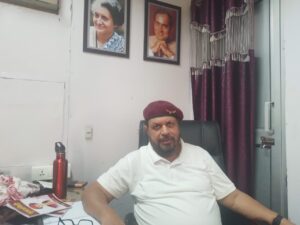
There is no reservation in the corporate world or the private sector. Will the Congress raise this issue?
There is no private sector in this country. There is only the Manu sector. The private sector is the Manu sector. A hundred per cent of the people in this sector are savarnas. You are using the wrong nomenclature. We will not allow it to remain a Manu sector. We will make it a Bharat sector. It should reflect the Indian demography. The same is true of the higher judiciary. We have been independent for 77 years. In this period, we have had 600-700 Supreme Court judges. But not a single person from the OBC community to which I belong – and it has a sizeable population – has become a Supreme Court judge. A particular section of the population has dominated the Supreme Court. This hegemony should end. Everyone should get representation. This is the vision of Rahul. It’s not about making four people MLAs and one of them a minister. This is the BJP’s vision. If a person from a particular community is made even the President of India, will the problems of that community disappear? Are the Adivasis better off today?
Will the Congress oppose the collegium system and support reservation in the judiciary?
The Congress wants all communities to have a presence in all walks of life. It would be patently Manuwadi to argue that since you were born into an Ahir family, you have to rear buffaloes. Why can’t an Ahir become a Supreme Court judge? Why can’t an Ahir join the corporate world? Will people from only a handful of communities dominate every area of life?
Does the Congress have an action plan for forging a Dalit-OBC unity?
Voltaire had inspired the French Revolution. In India, under the varna system, four varnas were created. Brahmin is one varna and one caste. Kshatriya is one varna and one caste. Vaishyas are also a varna and a caste both. The Shudras are also one varna but they have been divided into 3000-plus castes. That was done to ensure that they don’t come together and fight for their rights. They are fighting each other. The day the OBCs unite, the day the difference between Nonia and Kurmi disappears, there will be no stopping the OBCs. The situation today is that the EBCs are divided into Prajapati, Nai, Nonia and so on. These divisions have to go. Only then can we hope to win this battle.
But how will these divisions be erased unless all communities get due representation?
The basic premise is representation in proportion to population. If it is impossible to fix quotas for say 3,000 castes, devise a system. If they are divided into three-four categories we will support the move. In Telangana, the SCs were divided into three categories. It is not practically possible to divide 3,000 castes into as many categories. But it should be ensured that each community gets its due.
So, you favour subcategorization?
Yes. We are for it.
Do you want the report of the Rohini Commission to be made public?
The Rohini Commission’s report is not based on a caste census. How can we implement it till we have had a caste census? Suppose one community is two per cent of the population and another community is 20 per cent. Then, the latter would have to be given ten times more representation than the former. That’s why sub-categorization is essential. I would like to tell you that the caste survey done in Telangana is exemplary. It has covered all the relevant questions. Micro-level data was collected on the 3.5 crore population on 54 parameters. The questions were prepared with the help of the stakeholders. Nobel laureates have worked on it. It is a great model. The Gujarat model was fake and fictitious. The Telangana model will build the India of the future. To help understand, this is how I would illustrate. I am a doctor by profession. Now, if four patients come to me complaining of weakness, I won’t prescribe Chyawanprash to each of them. I will examine all of them. I will try to find out the deficiency of which particular element is causing weakness in each of them and then I will prescribe appropriate medicines. Caste census is similar. It will reveal all the dimensions. We will be able to know the problems each caste is grappling with. If a particular caste has an insignificant presence in the business arena, we can treat the problem. Someone from that caste can also become an Adani or an Ambani. All castes should get opportunities. But there is a rider. Caste census would only diagnose the problem. Treatment will have to follow.
What is special about the Telangana caste census?
It is special. The government had decided on a three-month timeline. Everything was done within the timeline. The questions were framed, data was collected. The data is huge. It is being analyzed in depth. Just wait. The conclusions will surprise the entire nation. The survey will set an example for the whole world. The world will learn from it. It is based on Babasaheb’s principle of giving special opportunities to the deprived, which was implemented by Nelson Mandela in South Africa. The protagonists of social justice will see a ray of hope in the survey results.
(Translated from the original Hindi by Amrish Herdenia)
